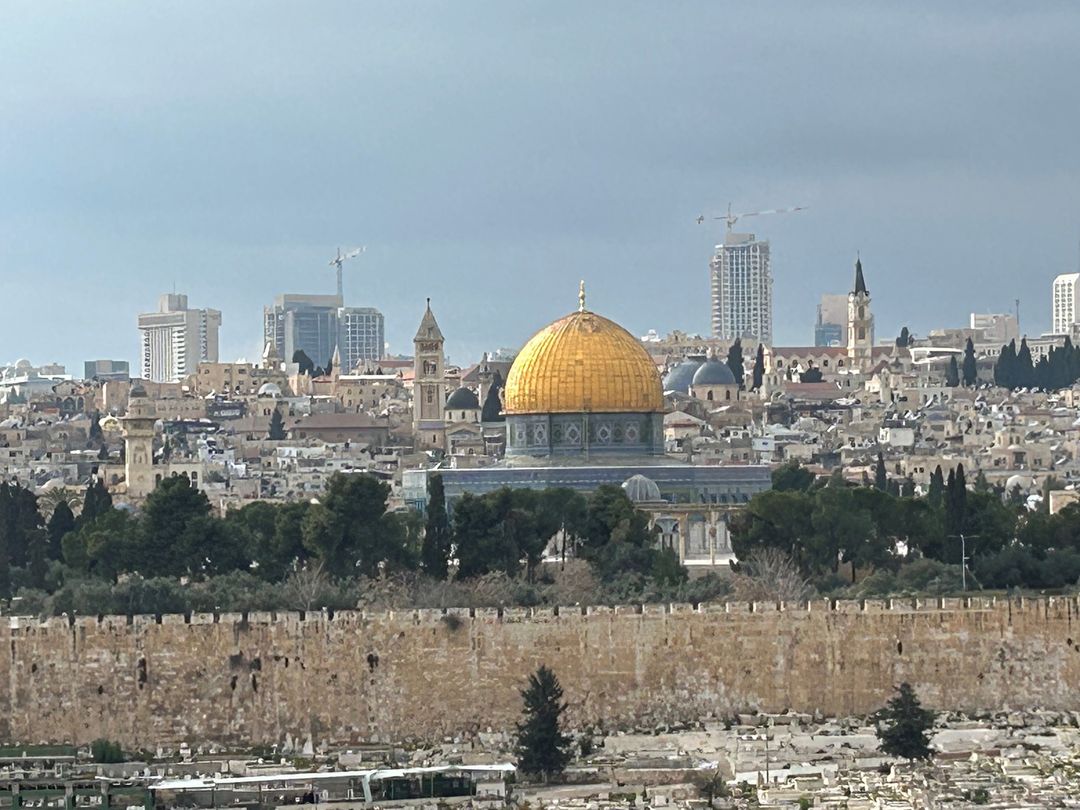LOADING
The Holy Land- Post Script
Share

My journey to the Holy Land actually began on Belle Mount Farm, outside of Warsaw, Virginia when I was just a little boy. When I had gone to bed, my father would come in my room every night, place his hand on my forehead, and would tell me my prayers ( a ritual I carried on w my children). I felt blanketed with a divine protection and the knowledge of a loving and merciful god. This feeling has never left me, though admittedly at times I have neglected to call upon it. As a boy, I didn’t know what to call it, later I realized it was and still is the Holy Spirit. Whenever “two or more are gathered…….,” you know the rest. Many people have been following my posts and have thanked me and said “thanks for sharing as I will likely never get the opportunity to go there.” My first synapse of thought that I hope is comforting ( despite having such an awesome experience) is to reassure you by stating that you don’t need to go to the Holy Land to know Jesus or to be touched by the Holy Spirit.
Having been touched by the Holy Spirit created an inquisitive nature to understand its source. The Baptist kids growing up were much better schooled in the bible than we Episcopalians (they also kicked our ass in the church softball league). This made me want to catch up, and eventually I did. I am a left brain, Aristotelian logic kind of guy. I am driven by facts and reason, and if you have ever read my articles, I constantly proselytise that one cannot possibly understand the past or how the future will likely unfold without a thorough understanding of human nature and the “duality of man.”
I remember a TA in my first year’s Western Civilization class at Virginia who stated that the Book of Isaiah was not written until years after the fact in order to make the prophecies seem true. I was open minded, but what I noticed was he offered no proof or convincing evidence. This may have been the first time I came to the realization that some people did not want to believe because believing meant that they could not become their own god. It’s human nature to feel this way, but the Holy Spirit transcends such thinking, and if touched by it, one realizes that there are eternal truths manifested to us that cannot be ignored. We can choose to submit or not.
Romans is a great book that wraps Christianity up in a legalistic and well reasoned package, but the book that actually appealed to my left brain the most is the Book of Acts. It is undeniable that something miraculous happened in the 1st Century. The fire of Pentacost. This new “way” spread like an actual fire around the Mediterranean, despite every reason in the world for it to have had zero “flamability.”
Back to my Aristotelian mindset. We visited Nazareth, the exact spot where Jesus was raised and viewed an historical reenactment site, learning about 1st century village life. This was “podunkville” on the edge of the Roman Empire. “Does anything good come out of Nazareth?” We saw the path that Jesus walked from Nazareth to Capernaum, the temple where he preached and we took a boat ride on the Sea of Galilee. We visited the likely spots where the Beatitudes were laid out, the feeding of the 5,000 and where Peter first saw the risen Lord. The geographical proximity of all these places to the historical events is very convincing.
The same is true with the events of the Passion Week. Is the story true? Does the Gospel get it wrong? Could these things have physically occured in the way they are reported in scripture? We saw where Jesus walked into the City, where he was with the disciples, the site of the Last Supper, the garden where he was arrested, we walked the steps to the cell he was likely thrown into waiting for his trial in the morning, where Peter denied him and where Pilate and Herod’s palaces were. We walked the way of the cross. At all points and places, I was counting the steps and looking at my watch. Could all these events have happened in the sequence and time frames reported in the bible? Answer: absolutely.
Last year at this time, I took an all day battlefield tour of Lexington and Concord. My ancestor Sylvanus Smith was captain of his militia and was there at “the shot heard ran the world.” I had read dozens of accounts of the battle, but never really got it enough to assuage my curiousity. I know what happened, but until you walk the land and use all five senses to soak up each intricate stage of the event, there is a feeling of “incompleteness.” Once done though, there is a feeling of wholeness.
The same is true of a trip to the Holy Land. Seeing the rugged Judean hillside, the rocky soil, the olive trees, visiting an ancient wine press and a threshing floor, a first century synagoue and eating the same fish and meals referenced in Jesus’s minisity brings a sense of wholeness that allows one to “feel” a very personal connection to what happend 2,000 years ago.
I have had spiritual epiphanies and have experienced the miraculous before this trip. Nothing like that happened in the Holy Land, but I will say, I now have a sense of wholeness that I didn’t have before. It makes my Christianity more complete, more real and gives me much more of a personal connection to Jesus’ ministry.
Will the trip make me a better Christian? I don’t know, I am pretty mean and ornery, not to mention shallow, superficial and sophomoric, but hey, time will tell.
All reactions:
Robert Rennolds, John Reynolds and 142 others
Previous Article
The Wild History of Disney’s Song of the South
Next Article
This Week in Woke: Truth is Stranger than Fiction




